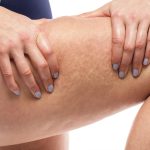Everyone gets body odor. Body odor, called bromhidrosis, is a normal part of being human. It’s embarrassing enough, though, that you may want to get rid of it. This article discusses body odor, its causes, and risk factors. It also offers tips for controlling body odor.
What Is Body Odor?
Body odor is an unpleasant smell that your body gives off. You probably associate body odor with sweat. But your sweat is actually odorless by itself. Body odor occurs when sweat reacts with bacteria on your skin. Other factors, such as diet, medical conditions or lifestyle habits, can also affect body odor.
Body odor is normal, but severe body odor can be classified as a medical condition, known as bromhidrosis, osmidrosis or ozochrotia.
So how can you stop the pesky stench? First, understand the science behind sweat. There are two types of sweat glands in your body: eccrine and apocrine glands.
Causes of Body Odor
Sweat itself doesn’t have a smell. Body odor comes from the bacteria that live on sweaty parts of your body. Bacteria thrive in moist environments, like your armpits. When you sweat, these bacteria break down certain proteins in the sweat into acids. So, it’s not the bacteria that stink. It’s the by-product of the bacteria breaking down the sweat.
Bacteria aren’t the only things that cause body odor, though. Body odor also depends on the type of sweat gland. You have different types of sweat glands, called eccrine glands and apocrine glands.
Eccrine Glands
Eccrine glands are found over your entire skin. These coiled glands are located in the lower layer of the skin called the dermis. Eccrine glands squeeze sweat directly to the surface of the skin through a duct. As the sweat evaporates, it helps cool your skin and regulate your body temperature.
The sweat produced by eccrine glands is mainly salt and other electrolytes. Eccrine gland sweat lacks the fats and other compounds that can smell when broken down by bacteria. Therefore, it’s less likely to produce a smell.
Apocrine Glands
Apocrine glands don’t help cool you off like eccrine glands do. These glands empty into a hair follicle instead of a duct. A hair follicle is a bulb-shaped cavity in your skin that hair grows from. Apocrine glands release sweat when your body temperature rises. They also release sweat when you’re under stress.
Apocrine glands are found in select areas of the body, including:
- Armpits
- Groin
- Pubic area
This explains why body odor mostly develops in your armpits and groin area, but not on your forehead.
It also explains why small children don’t get body odor even when they sweat. Apocrine glands remain inactive until puberty. During puberty, they start to produce sweat. It’s only then that body odor becomes an issue.
The sweat produced by apocrine glands is responsible for most cases of body odor. This sweat is high in fats and other compounds that smell when broken down by bacteria.
Medical Conditions
Certain medical conditions can cause you to produce more sweat and body odor than normal.
- Diabetes: Diabetes patients may experience a sudden change in smell or body odor, due to high levels of blood glucose. The liver produces chemicals (ketones) that make their way through blood, urine or breath and can alter body odor.
- Hyperthyroidism: Sweat and body odor can be a result of an overactive thyroid. When you have an overactive thyroid, your body produces an abundance of sweat, even if you aren’t physically exerting yourself. Your doctor will test your blood or urine to see if you have hyperthyroidism.
- Obesity: Those who are overweight or obese tend to sweat more. Fat insulates the body and raises its core temperature, causing increased sweat production and body odor. Obesity can also decrease airflow in sweaty areas, giving odor-causing bacteria the perfect climate to breed.
- Genetic Disorders: While rare, gene mutations can also affect body odor. Trimethylaminuria is a condition where your body can’t break down the chemical compound, trimethylamine. As a result, the compound builds up in your body and is released through sweat, urine and breath.
High Stress Levels
Have you noticed that stress sweat smells worse than your typical post-workout stench? That’s because stress sweat originates from the apocrine glands, which produce proteins that bacteria love.
When you’re stressed or anxious, your heart rate and body temperature increase, causing your apocrine glands to secrete sweat. This sweat mixes with the bacteria on your skin and produces B.O.
Personal Hygiene Habits
Practicing good personal hygiene habits can keep body odor at bay. This may seem obvious, but showering daily is important — even if you think you don’t need it. Not showering every day can cause bacteria to build up on your skin, resulting in heightened body odor.
If body odor is a primary concern, be sure to use the right personal care products, whether it’s a standard deodorant or an antiperspirant-deodorant combination if you tend to sweat more.
Unlike deodorants, antiperspirants aren’t designed to prevent body odor; their primary purpose is to block sweat ducts from producing sweat. So if you need to manage sweat and odor, use an antiperspirant or antiperspirant-deodorant for best results.
Diet
Certain foods, along with caffeine and alcohol consumption, can intensify unpleasant body odor. Your liver metabolizes most of the alcohol you drink and excretes it through your urine. But if you drink too much or too fast, your liver has difficulty processing the alcohol.
Instead, your body releases the excess alcohol through your breath and pores, resulting in stinky body odor. Caffeine can also affect body odor. Caffeine causes dry mouth, which can amplify bacteria and odor. Additionally, hot, caffeinated beverages can raise your body temperature and cause you to sweat more, leading to an increase in body odor.
Here are a few foods and diets that cause body odor:
Cruciferous Vegetables: Broccoli, cabbage, cauliflower and Brussels sprouts contain sulfur, which your body absorbs and secretes through your sweat glands.
Spicy Foods: Spices like curry and cumin can get trapped in your pores and emit a strong, unpleasant odor.
Refined Sugar: Foods high in refined sugar can lead to yeast overgrowth. Having an abundance of intestinal yeast causes sugars to convert into alcohols that contribute to B.O.
Fish: Certain fish like salmon and tuna contain choline, a member of the B-complex vitamin family that emits a naturally fishy smell. Some people who eat a serving of fish will secrete choline in their sweat for up to a day.
Red Meat: The amino acids in red meat leave behind a residue in your intestines. Internal enzymes break down the residue, which then mixes with bacteria on your skin and intensifies your body odor when you sweat.
No-Carb or Low-Carb Diet: When you cut back on carbs, your body starts burning fat for energy. This process produces a chemical that can make your sweat smell like nail polish remover or fruity.
Tips for Reducing Body Odor
Body odor can be embarrassing. Fortunately, in most cases, it doesn’t signal a serious problem. There are things you can do to banish body odor, or at least tone it down.
Shower Daily
Shower at least once a day. Use soap or shower gel and lather up thoroughly. Pay special attention to the areas prone to body odor. If you are in a very hot or humid area, you may need to shower twice a day. You can also use a washcloth to wash just your armpits, groin, and skin folds. Be sure to shower immediately after you exercise or sweat.
Choose the Right Underarm Products
There are two types of underarm products: deodorants and antiperspirants. Deodorants make your underarms less hospitable for bacteria. They also help mask body odor with a fragrance. Antiperspirants block sweat glands to reduce perspiration.
If you don’t sweat much but still get body odor, deodorants are a good choice. If you sweat a lot, look for a product that is both an antiperspirant and a deodorant.
If you have strong body odor, look for a product with higher amounts of active ingredients. If over-the-counter products don’t seem to help, talk to your doctor. You might benefit from a prescription antiperspirant/deodorant.
Wear Breathable Fabrics
Natural fabrics like cotton are better than polyesters, nylon, and rayon at controlling body odor. Natural fibers breathe. This lets sweat evaporate.
Avoid fabrics that trap sweat against the skin. These create a better breeding ground for body odor. When working out, choose moisture-wicking fabrics.
Change Your Diet
Remove or reduce spicy or pungent foods from your diet. This includes foods like:
- Curry
- Garlic
- Spicy peppers
- Brussels sprouts
- Broccoli
- Onions
These foods can cause a more pungent sweat. Even alcohol can change the smell of your sweat. If you eat these types of foods regularly, try eating less of them or stop eating them altogether. This might help improve your body odor.
Shave or Wax
Apocrine glands are concentrated in areas covered by hair. This includes the armpits and the pubic area. Hair holds sweat and makes a good home for bacteria. Removing hair can help control body odor. Consider shaving your underarms. If you’d rather not go bare, try trimming the hair short. This can also help reduce body odor.
Daily showering, antibacterial soap, and the right underarm product can help control body odor. You can also try wearing breathable fabrics, avoiding certain foods, and shaving or trimming body hair.
Natural Home Remedy Hacks
You can find plenty of odor-fighting ingredients in your kitchen or bathroom cabinet.
Witch hazel is a natural astringent. It contracts your skin’s tissues and reduces the amount of sweat you produce. Most witch hazel extracts also contain rubbing alcohol, which helps fight odor-causing bacteria. Douse a cotton ball with witch hazel and apply it on your underarms after showering.
Apple cider vinegar is antimicrobial and naturally acidic. It destroys smelly bacteria by balancing out the pH level of your skin. Douse a cotton ball with apple cider vinegar and apply it on your underarms after showering.
Lemon juice is another acidic ingredient that neutralizes your underarm area and fights smelly bacteria. Rub half a lemon directly on your armpits once daily. If your skin is extra sensitive, you can mix equal parts lemon juice and water to dilute the solution.
When to See a Doctor About Your Body Odor
We all experience sweat and body odor — it’s a natural part of being human. But if sweat and body odor are interfering with your daily life, it could indicate an underlying medical condition.
Bromhidrosis, also known as osmidrosis, is the medical condition for chronic foul body odor. People who have bromhidrosis produce excessive sweat and odor-causing bacteria. The odor often resembles a cheese-like or onion-like smell, common in the armpit and groin regions.
Trimethylaminuria (TMAU), also known as fish odor syndrome, is a rare metabolic disorder that causes the compound trimethylamine to be released in a person’s sweat, urine and breath, giving off a strong fishy odor.
Consult your doctor if:
- You start sweating at night.
- You start sweating more than usual without any logical reason.
- You experience cold sweats.
- Sweating or odor interrupts your daily routine.
- Your body smells different than usual. A fruity or bleach-like smell could be an early indicator of diabetes, liver or kidney disease.
Summary
Body odor is caused by bacteria breaking down the sweat from the apocrine glands in your armpits, groin, and pubic area. You may be more prone to body odor if you are overweight, eat certain foods, have certain health conditions, or are under stress. Genetics may also play a role.
You can prevent body odor with lifestyle changes like daily showering and choosing the right underarm product. If you still have body odor after trying these things, ask your doctor about prescription medication or medical procedures that might help.
Your body naturally produces body odor. Everyone gets body odor sometimes. You can’t completely get rid of it. Most often, body odor is more noticeable to you than it is to anyone else. If body odor is affecting your life, please give your doctor a call. Treatments can help reduce body odor and help you feel confident again.
READ MORE: Sweat & Conditioning Are They Linked?









